- Learning time
- 40 minutes
- First play time
- 100 minutes
Terra Nova
Designed by: Andreas Faul
This is the 2022 title Terra Nova, not to be confused with the 2006 game of the same name
Terra Nova is a game of building. Players begin with two houses each on the board, and over five rounds will build more houses, upgrade houses to trading posts and trading posts to palaces. But while the game suggests you build the largest connected network of buildings (for end-of-game points) there are other ways to win…
Everyone has a faction board in front of them with buildings of their colour arranged on it. The faction board has two purposes: it shows how much income you get at the start of each round (-as you construct more buildings, your income goes up) and it also lists your special ability, which is unique to only you. Everyone also takes a bonus tile, which gives you additional income.
On every turn you take a single action, assuming you can afford to: most of them cost money. The shared board is broken down into hexagons of different terrain type: some terrains are perfect for your faction to build on (pay 4 cash to construct a house!), but other hexes have to be made habitable by paying extra to convert the terrain into the type that suits your faction. The Sandcats like the desert, for instance, whereas the Seadogs prefer the water. You can build bridges over the rivers to connect to the other side. You can improve your sailing capacity to reach across water without paying for a bridge. You can, as mentioned above, pay money to upgrade houses into trading posts, and trading posts into palaces, each of which trigger special abilities or rewards specific to each player. Also, each building has a town value (houses 1; trading posts 2; palaces 3) and if your adjacent buildings have a combined town value of seven or more, they instantly become a town: you get to place a town tile on the board and get the rewards on the tile: points, cash, or power.
Power is a kind of secondary economy in a game where money is hugely helpful. You can spend power during a round to take a power action: they’re on the shared board, and each one is simple: get some cash, build a bridge, construct cheaply and so on. But timing is everything: partly because each power action is only available once per round, and partly because when power is spent it must be recharged: cycling through two unavailable ‘bowls’ to become available again; and this cycling only happens during the income at the start of a new round. When you’re out of actions – no money, no power, or no desire to spend them – you pass: returning your bonus tile and taking a new one ready for the next round.
Finally, in each round there is a randomized scoring tile which gifts you points for doing a certain thing: building or upgrading, improving your sailing and so on. So as well as the long-term rewards of towns and networks, there are short-term objectives available to you that mean instant points, but on a smaller scale. Outside of the specific faction abilities – which are not trifling, but don’t add a bunch of extra rules – that is pretty much the game. Except that to say – as we did at the outset – that Terra Nova is a game of building slightly misrepresents it. Because it’s a game, also, of building in each others’ way. Allowing any player to expand unhampered to build towns and large networks is allowing them to win: particularly in games with four. Terra Nova is about real estate, but the best buildings don’t just further your own progress on the board, but actively hamper everyone else’s.
The guru's verdict
-
Take That!
Take That!
Yes. While nobody can blow up your palace, mow down your trading post or bulldoze your house, the passive aggression of area-control with Terra Nova pushes the definition of passive.
-
Fidget Factor!
Fidget Factor!
It's the classic of high on a first play (when decisions may feel arbitrary) but dropping rapidly with familiarity, as you spot opportunities, attempt to avert danger, and maximise the power of your faction's special ability.
-
Brain Burn!
Brain Burn!
The nub of it is simple: build, and build where you obstruct others. Around that are the strategic rewards for big networks and tactical returns from the round-by-round scoring criteria. The power can seem initially bolted on, but the fact each power action can only be taken once per round adds extra dynamism to each play.
-
Again Again!
Again Again!
Eight different factions to try out and the randomized set-up (scoring and bonus tiles) keep Terra Nova fresh and intriguing.

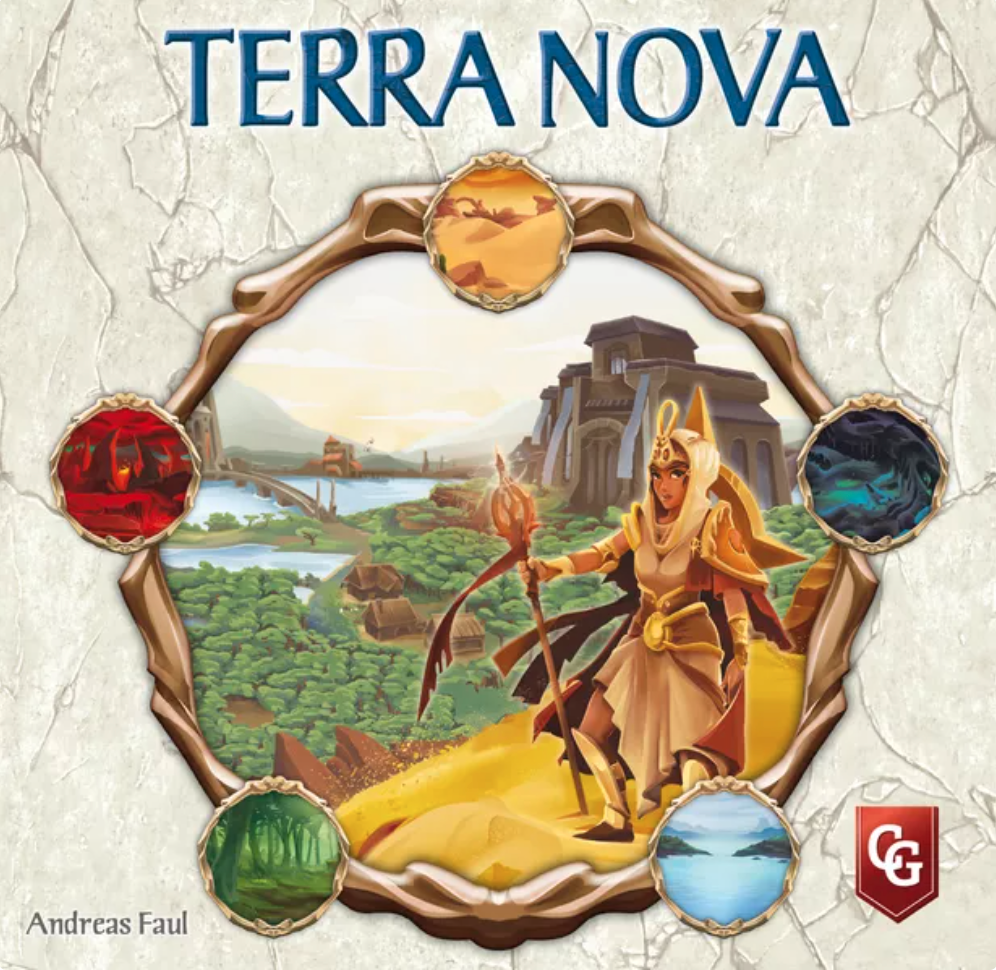
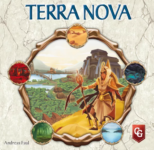
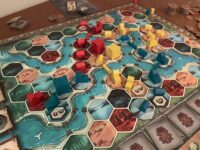
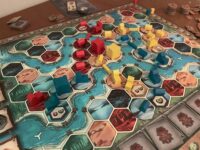
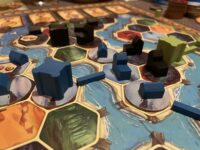
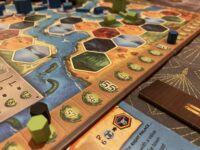


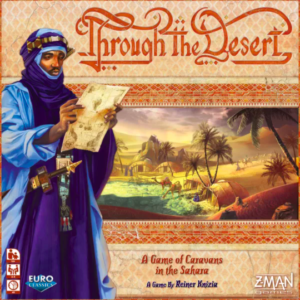
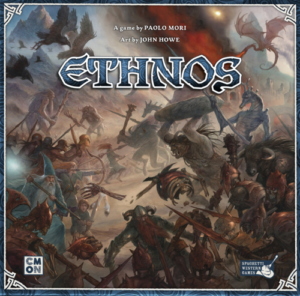
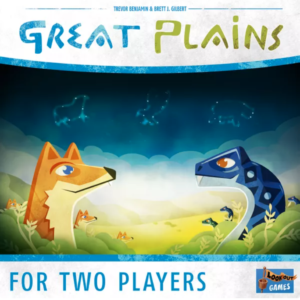
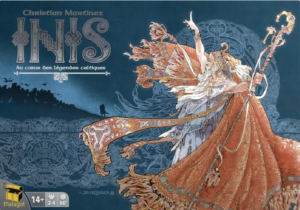
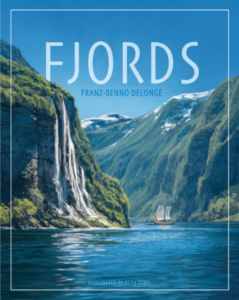
Sam says
When I first played Terra Nova it seemed almost... dull. We just build things for five rounds and the best network wins? But something about it brought me back and, playing more combatively, the game sprang into life in an entirely different fashion. One person focused on the round-by-round scoring. One built the biggest network. One had the smallest network, but managed to build two towns (and won) courtesy of their special ability, which allowed them to connect buildings across rivers without any bridges (bridges are expensive!) Since then I've revisited the game again and again, and always had a thoroughly good time. A favourite from 2022.